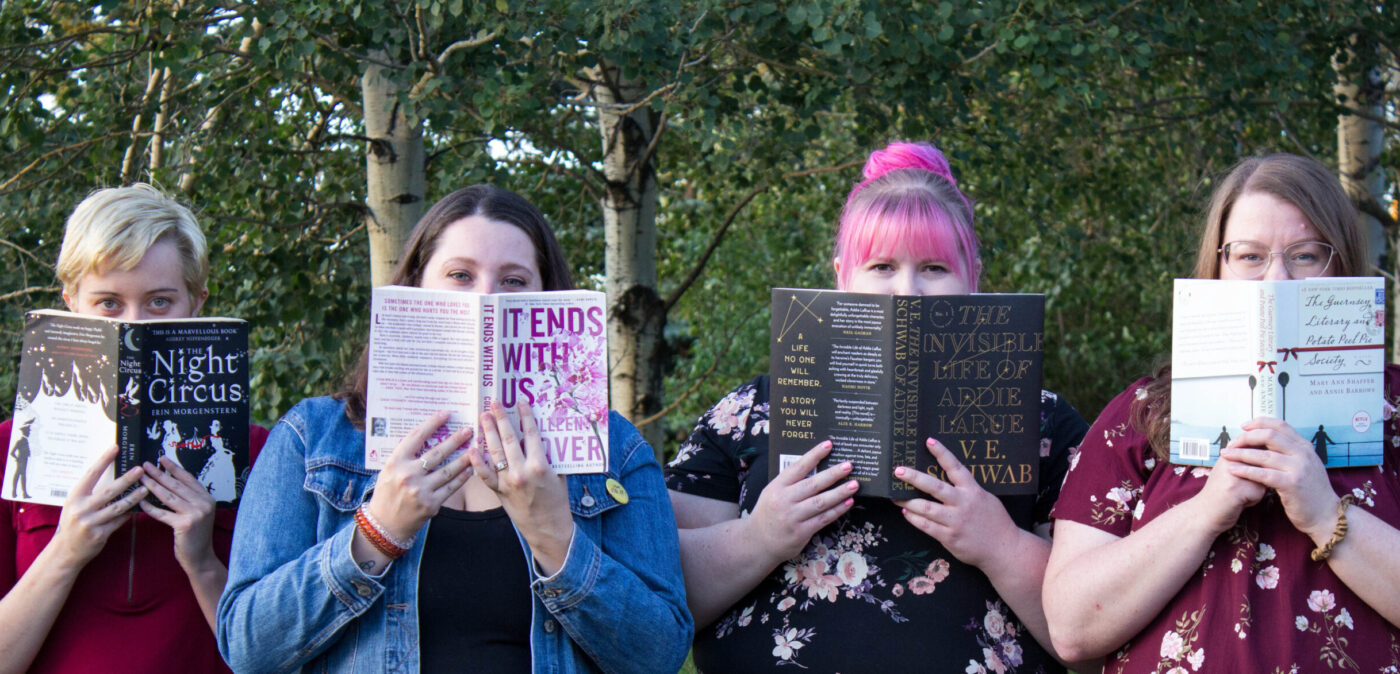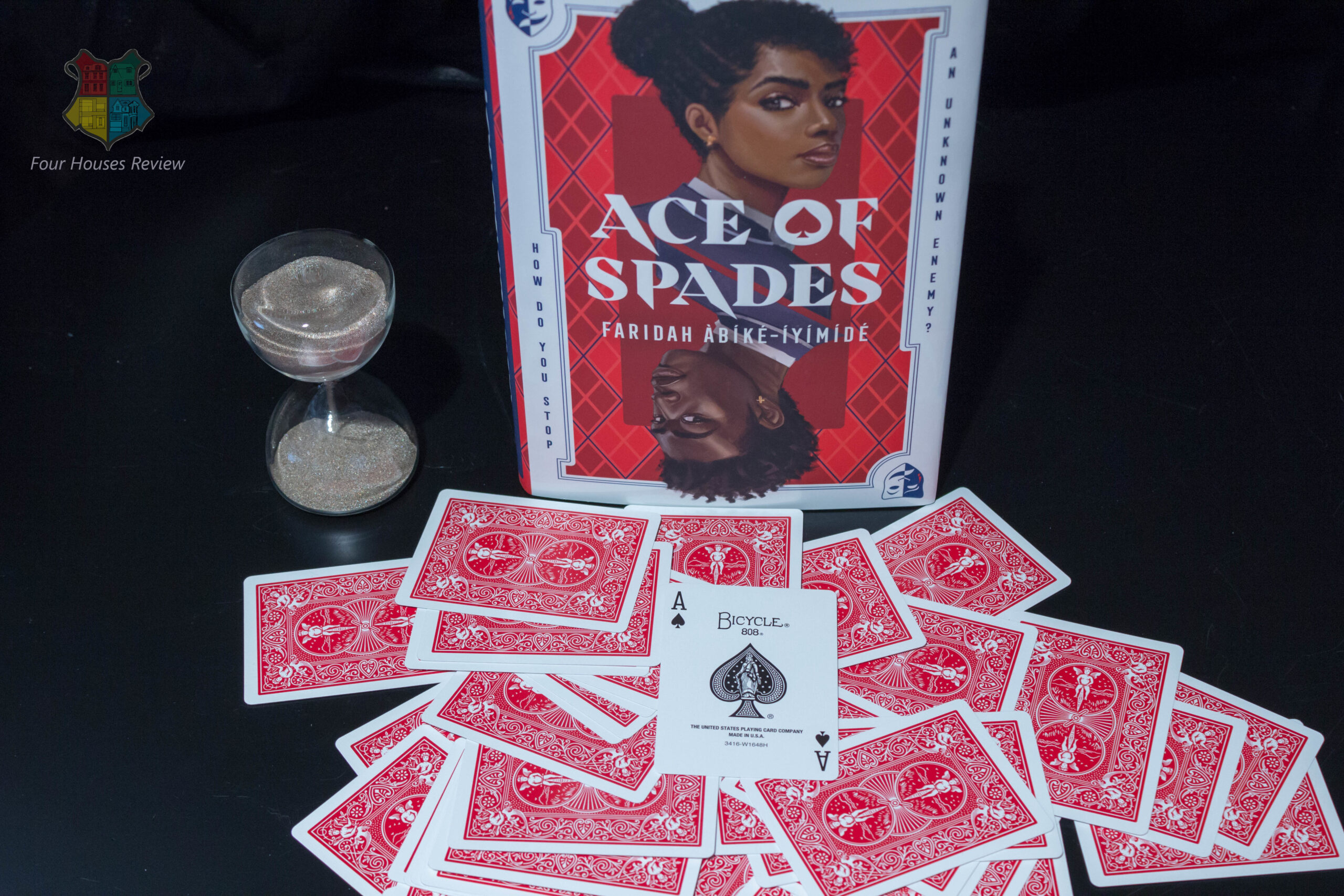A **Spoiler Filled** Review
If you got here by accident, click here to return to our spoiler free review
Has everyone already read the book? Or isn’t afraid of spoilers? Yes? Okay, let’s do this!
So, we don’t mean to sound super negative with this review. We said in our *spoiler free* reviews how much we appreciated ÀbÍké-Íyímídé’s ability to incite emotion in her reader. Still true! And her unique exploration of racism taught us a lot. But let’s talk about the things that came out of the woodwork when we looked back and discussed what we had just read. Overall, we wish that ÀbÍké-Íyímídé had narrowed down the themes and more fully explored those. For example, it would have been so cool if the epilogue said that they had tracked down some of the previously targeted students and gotten them help, and left out the prison storylines.
This is minor, but we thought that the similarities between Devon and Chiamaka were out of place. They were presented at the beginning of the book as people from different social circles, sciences vs the arts, and different family backgrounds. The only thing that they had in common was that they were the only black students in the school. Then the similarities began to grow. Of course this always happens when you take the time to get to know someone, but they both had these vague memory problems. It seemed too coincidental. We might have bought it if both of their memory issues came from that drugged drink that Chiamaka had at the party, so that the racist cabal had orchestrated it all, but Devon’s memory gap came from a completely different source. It felt too strange and forced for characters who were presented as being dissimilar
What was the point of the storyline with Devon’s father? Was it to fulfill a stereotype in his background? Because having a single-mother and living in a poor neighbourhood already put Devon in that box. Was it to amp up his emotional distress even more? Because he was stressed out enough. That’s a huge emotional rollercoaster to put him on for no reason, and ÀbÍké-Íyímídé didn’t deal with it at all. That storyline consisted of 1. He discovered that his Dad had died on the last day Devon had seen him. 2. It distracted him later that afternoon. And 3. In the Epilogue he says that he was mad at his mother for a long time, but now they were good again. What?? What did that bring to the story? We think it actually detracted from the rest of the plot because it wasn’t actually dealt with.
We were not fans of the choice to pull Terrell into the cabal. Not only was Jack involved, but also this other dude, who shows up out of nowhere. We never felt like we could trust him, so it was a letdown when it came out that yup, he did play along with Aces at first. Granted it was to help out his invisible sister with a mysterious illness (did she even exist??), but still.
Headmaster Ward. What a creeper. And yet, it felt like he was totally underused. You saw him in the first-day assembly, when Devon and Chiamaka finally went to the administration, and then at the dance when he held a gun to Chiamaka’s head. I don’t even know what to say about the very final scene in the epilogue. Did Chiamaka kill him? Becoming just what she was fighting against and violating her doctor’s oath? We would have liked to have seen him as more of a lurking danger, hovering on the edges, making you feel uncomfortable throughout the book. Also, the pictures of Camp Aces from 1965. ÀbÍké-Íyímídé wrote that it was Ward in those photos. Not a man that looked very much like him, but Ward exactly. It made us start to wonder if there was something supernatural that was actually happening. But no, it was supposed to be simple family resemblance…? But why not see other resemblances in that photo if this was supposed to run in families?
In this day and age of news vs fake news, BLM, etc, how Devon and particularly scientific-minded Chiamaka approached the journalist drove us nuts. You could totally see it coming that the journalist was dirty. They simply called up the local station and talked to the first person who would listen? When you know that this involves the very influential families of your classmates? Not smart. We couldn’t understand why they didn’t research the journalist first. They should have either gone to a non-white journalist from the get-go, or they should have done their due diligence and found a journalist (regardless of colour) with a history of not being intimidated by powerful people, who routinely broke stories that people in power wanted to bury. This felt obvious and stupid that they didn’t do this.
Lastly, the final showdown. This part of the story felt like ÀbÍké-Íyímídé was writing the most sensational ending she could think of, but it didn’t make any sense. First of all, the cabal was presented as being a large portion of Nivea’s legacy families. Not the entire school. Yet everyone was wearing a mask and going along with it. Second, we understand Devon’s tweet went viral, but it was still within days of the ball. How did they organize a mob in time? How did they know when to show up? How did they enter all together? It seemed very unlikely. And thirdly, the fire. How did that happen? We loved the section where Chiamaka took on Jamie in the back room, but then it seemed weird that the known pyro was knocked out and a huge fire somehow started and killed the unconscious pyro. Or did he wake up and decide to torch the school because he was pissed that Chiamaka had bested him?
See what we mean about problematic leaps or holes? We think ÀbÍké-Íyímídé is going to be a great author of Thrillers, but we also hope her next book is woven together more tightly. Thank you for joining us on our rant.

